Homeowners Water Damage Insurance Claim Tips - Introduction
Imagine waking up one chilly morning to discover a water leak in your home. Your central heating system or one of your washing machines has sprung a leak, and now you're facing potentially significant water damage or realising you need to make a bathroom leak insurance claim due to a burst pipe. It's a homeowner's nightmare and a situation where your house insurance can come into play. Understanding the complexities of the claims process is vital for UK homeowners filing a water damage claim with insurance. Here's what you need to know about making a water damage insurance claim following a water leak.
Water Damage Claim Stats
Homeowners Water Damage Insurance Claim Tips - Summary
Water leaks can cause extensive damage to homes, making it necessary to file an insurance claim. This article provides homeowners water damage insurance claim tips on navigating the complexities of making an insurance claim after water damage, covering:
- understanding your policy's coverage and exclusions,
- determining when to file a claim and the proper steps for filing,
- the documentation required,
- overcoming challenges like disputes or denials,
- and the importance of regular maintenance to prevent leaks.
The key is acting quickly, documenting thoroughly, and being persistent when making a claim, potentially with the assistance of a professional claims management service. Following this advice can increase your chances of a successful water damage claim.
Water Damage and Insurance Claims
Navigating your home insurance policy regarding water leak coverage is your starting point. Typical insurance agreements cover 'sudden and unforeseen' water damage, such as that from burst pipes; however, they might exclude gradual damage, like a slow leak that has gone unnoticed or untreated over time. To avoid unpleasant surprises, familiarise yourself with the specifics of your policy's coverage limits and common exclusions. It's crucial to understand whether scenarios such as 'escape of water' vs 'flood damage' apply to your circumstances.
Can You Claim on House Insurance for a Water Leak?
In most cases, the simple answer is yes; most British insurers cover water leaks. However, the details are often tucked away in the fine print of your policy, making claiming water damage on insurance more complicated than it needs to be.
Home insurance typically includes 'trace and access' cover, which means the cost of finding and fixing the source of the leak is covered. However, the damage caused by the leak might be only covered by your contents insurance, so it's crucial to understand the terms of your policy.
It's important to note that insurers often require that you act quickly to minimise damage. This means as soon as you discover the leak, you should turn off the stopcock to halt the water supply and open your taps to drain the system to stop the leak.
Should I File A Claim For Water Damage?
The decision on filing home insurance claims for water damage largely depends on the extent of the damage and the terms of your insurance policy. For small leaks that only cause minor damage, paying out-of-pocket might be more cost-effective rather than risking a potential increase in future premiums.
However, for substantial water damage – for instance, water leaks from burst pipes or frozen pipes in winter – the cost of repairs can be significant, and filing an insurance claim for water damage can provide much-needed financial relief.
How to File a Water Damage Insurance Claim

Taking prompt and decisive action can streamline the process when making an insurance claim for water damage. Start by pinpointing the source of the leak and halt further damage where possible. Then, contact your insurance provider without delay. The initial report sets the stage for your claim, and providing accurate details is imperative.
When to File an Insurance Claim to Repair Water Damage
Filing a claim should be a calculated decision. Weigh the cost of the deductible against the extent of the damage. Consider potential premium increases and the impact of a claim on your no-claims bonus. It may be economically more sensible to manage repairs out-of-pocket for minor incidents.
Documentation and Proof for Water Loss Insurance Claim
Solid documentation is the backbone of a successful insurance claim. Capture photographic evidence of the damage and retain all correspondence with contractors and your insurer. Secure detailed repair quotes, as these documents are critical appendices to your claim. This is one of the most vital homeowners water damage insurance claim tips, so please make sure you document everything around your claim.
Homeowners Water Damage Insurance Claim Tips - How to Make a Successful Claim
- Act Quickly: As soon as you discover the leak, turn off your water supply to prevent further damage. This minimises the damage and shows your insurer you've taken reasonable steps to mitigate the issue. Reporting water damage to your insurance company within 24 hours of discovering the leak is a good idea.
- Document Everything: Take pictures or videos of the leak and resulting damage. These can provide invaluable evidence when filing a homeowner’s claim for water damage.
- Contact Your Insurer: Inform your insurer and report a water leak immediately. They may send a loss adjuster to assess the damage or ask you to get quotes from local tradespeople for the repair work. It is worth enlisting the assistance of a Loss Assessor such as Oakleafe Claims, who understands the water damage claim process and can help prepare and present your claim successfully.
- Claim for 'Trace and Access': If the source of the leak is hidden, you'll need to claim for the cost of finding and repairing the leak under the 'trace and access' cover.
Remember, it's important to understand your policy thoroughly. If you have 'home emergency' cover, your insurer might also cover the cost of emergency repairs.
Who Pays for Insurance Claims for Water Damage to Homes?
The responsibility for covering the cost of water leak damage usually falls to the owner of the property where the leak originated. If the leak came from your property, your home insurance should cover the cost, subject to the terms and conditions of your policy.
If the leak originated from a neighbour's property, they must report a water leak or leaking pipes. Their insurance should ideally cover the cost of damage to your home. However, if they're uninsured or unwilling to make a claim, you might have to claim on your own insurance and let your insurer reclaim the cost from the neighbour or their insurer.
Discussing the situation calmly and professionally with your neighbour is important, remembering that water leaks are often unexpected and unintentional.
Overcoming Common Challenges With Water Damage and Insurance Claims

Even with meticulous documentation, challenges may arise. Delays in reporting could weaken your claim, and disputes over policy coverage can result in contentious negotiations. In denied or underpaid claims, understand that you can dispute and appeal the decision. The ability to articulate your position with evidence-based clarity is paramount.
Homeowners Water Damage Insurance Claim Tips
Prevention
Possibly the biggest homeowners water damage insurance claim tips we could give you is that an ounce of prevention is worth a pound of cure. Regular maintenance, such as periodic plumbing inspections, can significantly reduce the risk of water leaks. Employ early detection tools like water sensors to catch potential issues before they escalate. Proactive improvement measures also demonstrate a commitment to properly care for your insurer – a factor that could be advantageous during a claim.
Here are 10 more tips to help you make a successful damage insurance claim:
- Understand your insurance policy thoroughly, including what is covered (e.g. sudden/accidental water damage) and what is excluded (e.g. gradual leaks, flooding).
- Act quickly when you discover a leak - shut off the water supply to prevent further damage and report it to your insurer within 24 hours.
- Document everything with photos/videos of the leak and the resulting damage. This evidence is crucial for your claim.
- Contact your insurer promptly to report the leak and follow their instructions.
- Get quotes from local contractors for the full scope of repair work needed.
- Claim for "trace and access" costs if the source of the leak is hidden within walls/floors.
- Consider hiring a professional loss assessor who understands the claims process to prepare and present your case.
- Be persistent if your claim is initially denied or underpaid - you can dispute and appeal with evidence.
- Implement preventive measures like regular plumbing inspections and leak detection sensors.
- Keep maintaining your property well, as insurers look favourably at responsible homeownership during claims.
Conclusion: Homeowners Water Damage Insurance Claim Tips
How to Make a Water Damage Insurance Claim - Water leaks can be stressful and cause extensive damage to your property. However, with the right information and by taking swift action, you can navigate through the process of making a successful house insurance claim for water damage.
The water damage insurance claim process can be complex and requires a thorough understanding of formal procedures and detailed evidence. It's vital to understand your insurance policy fully, and feel free to seek advice from an insurance agent or loss assessor if you need clarification on anything. Being well-informed can make all the difference in the face of a water leak.
Hiring an insurance Claims management professional is recommended to ensure your claim is presented correctly and efficiently. At Oakleafe our staff are fully accredited and highly trained, ensuring we provide the best possible service.
In conclusion, preventing water leaks through regular maintenance and taking necessary precautions is crucial for safeguarding your home. Understanding your insurance coverage and following the correct procedures when making a claim can help cover the costs associated with water damage. By implementing preventive measures and being prepared, you can minimise the risks and potential impact of water damage on your property.
FAQs: Homeowners Water Damage Insurance Claim Tips
How does a water damage insurance claim work?
When you discover a water leak causing damage, immediately shut off the water supply to prevent further damage. Then, contact your insurance provider right away to report the leak and damage. Your insurer may send an adjuster to assess the damage or ask you to get repair quotes. You'll need to provide evidence, like photos/videos documenting the extent of the damage. If your claim is approved per your policy's coverage, your insurer will pay out for the covered repair costs minus your deductible amount.
Should I make an insurance claim for water damage?
It depends on the extent of the damage and the terms of your insurance policy. For minor leaks that cause little damage, it may be more cost-effective to pay out-of-pocket rather than file a claim which could increase your future premiums. However, the repair costs can be significant for substantial water damage from burst pipes or major leaks. In those cases, filing an insurance claim can provide much-needed financial relief, as that's what your policy is intended to cover. Weigh the repair costs against your deductible and potential premium increases when deciding if a claim makes financial sense.
Can you file an insurance claim for water damage?
Most British home insurance policies cover "sudden and accidental" water damage incidents, such as leaks from burst pipes or faulty appliances. However, policies typically exclude gradual leaks that have gone unnoticed or untreated over time. Home insurance usually includes "trace and access" coverage, which covers the cost of locating and repairing the source of the leak.
However, the actual damage caused by the leak may only be covered under your contents insurance policy. So, in summary - you can file a water damage claim with most standard home insurance policies in the UK, as long as the damage was caused by a sudden, accidental leak and not a gradual one. But you need to understand what is and isn't covered under your specific policy related to leak source repairs versus damage repairs.
How to make a water damage insurance claim?
Here are the key steps for how to make a water damage insurance claim:
- Act quickly - As soon as you discover the leak, turn off your water supply to prevent further damage.
- Document everything - Take photos/videos of the leak and the resulting damage to provide evidence for your claim.
- Contact your insurer immediately - Report the water leak and damage within 24 hours if possible.
- Follow their instructions - Your insurer may send a loss adjuster to assess the damage or ask you to get repair quotes.
- Provide documentation - Submit photos, videos, contractor repair quotes and any other requested documentation.
- Claim for "trace and access" - If the leak source is hidden, claim for the costs to access and repair it.
- Be persistent - If your claim is denied or underpaid initially, you can dispute it and appeal with your evidence.
- Go Professional - Consider hiring a professional loss assessor to assist with preparing and presenting your claim properly.
The key is acting fast, documenting thoroughly, and carefully following your insurer's claim process for the best chance at a successful payout.







